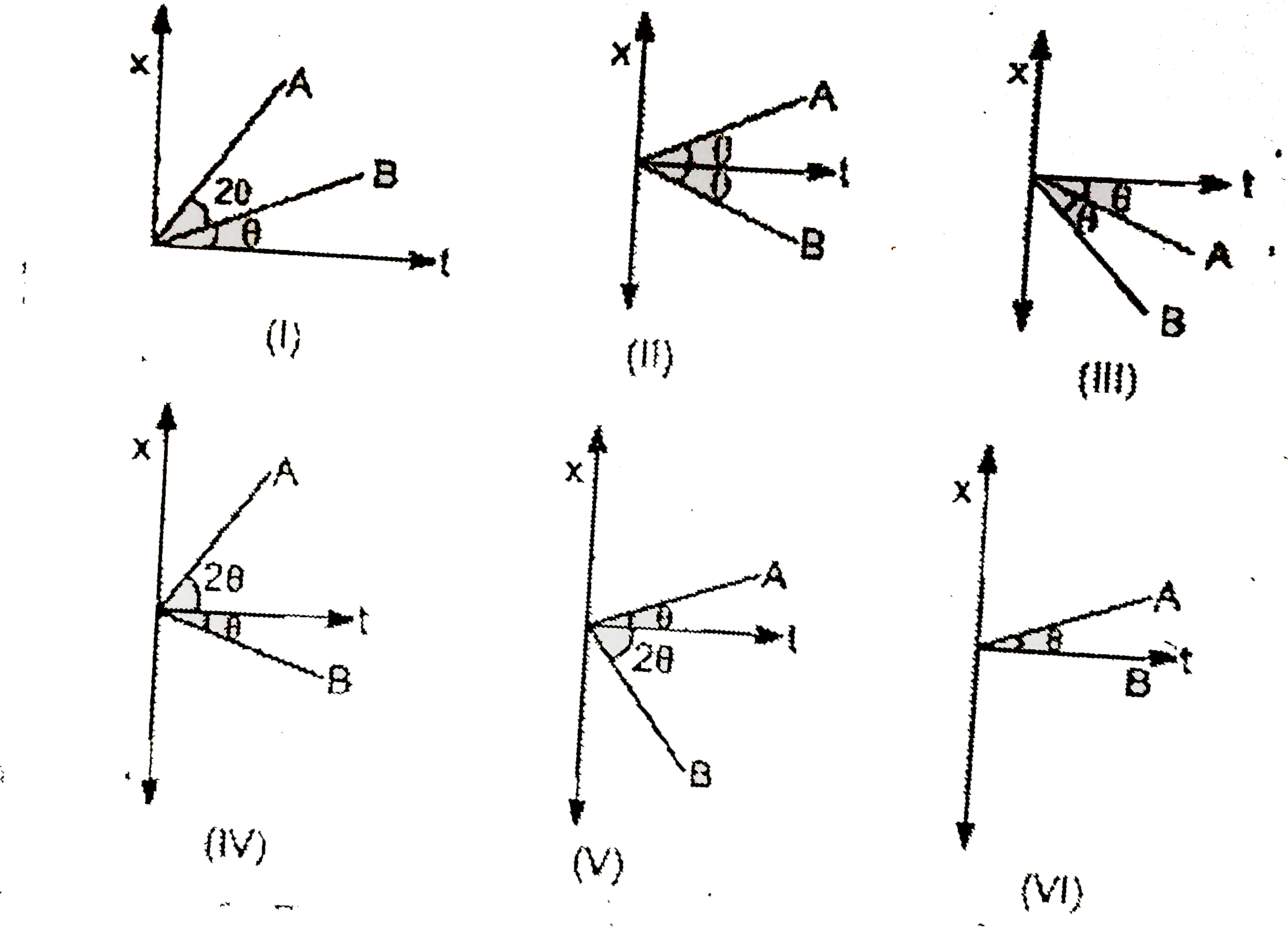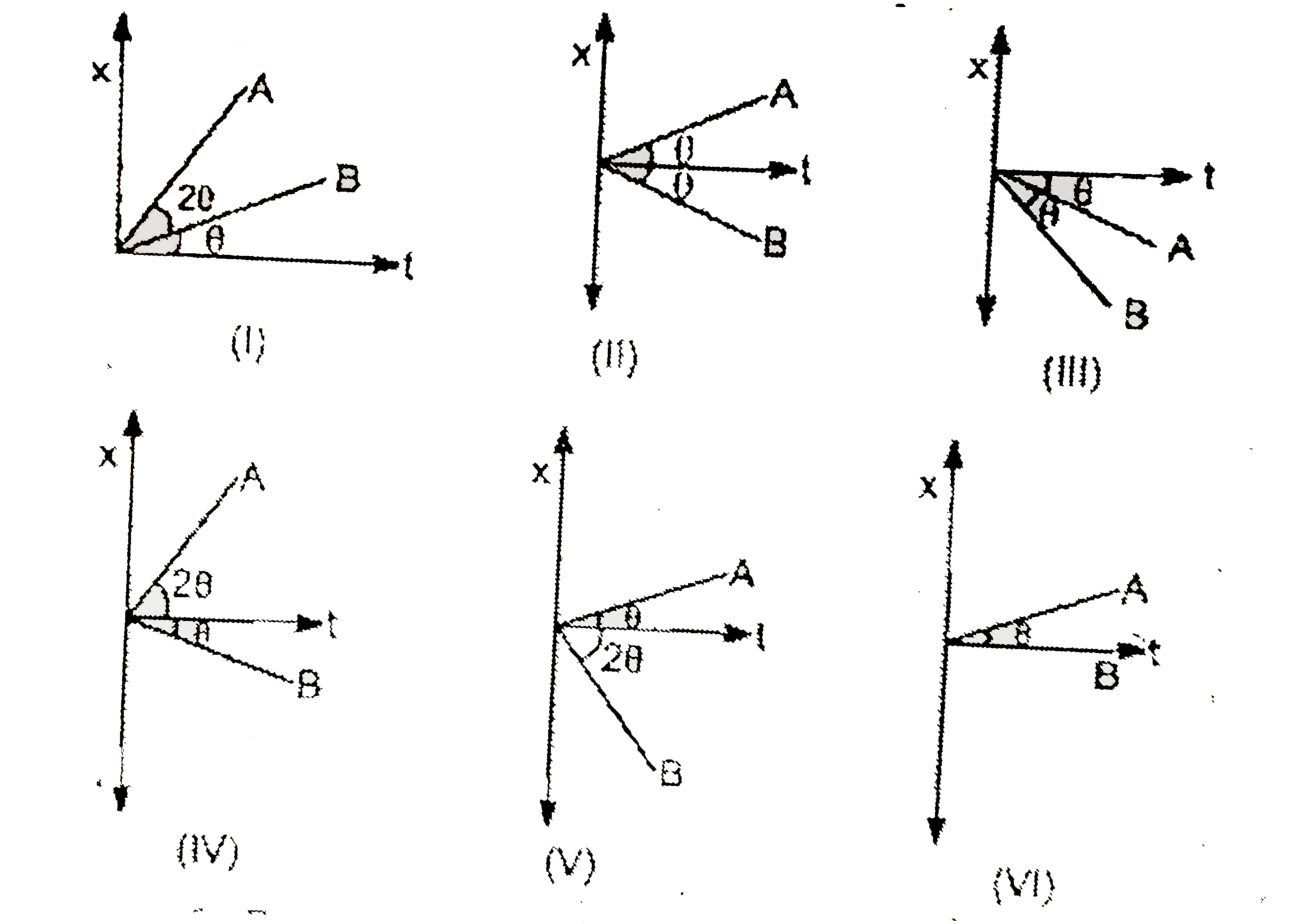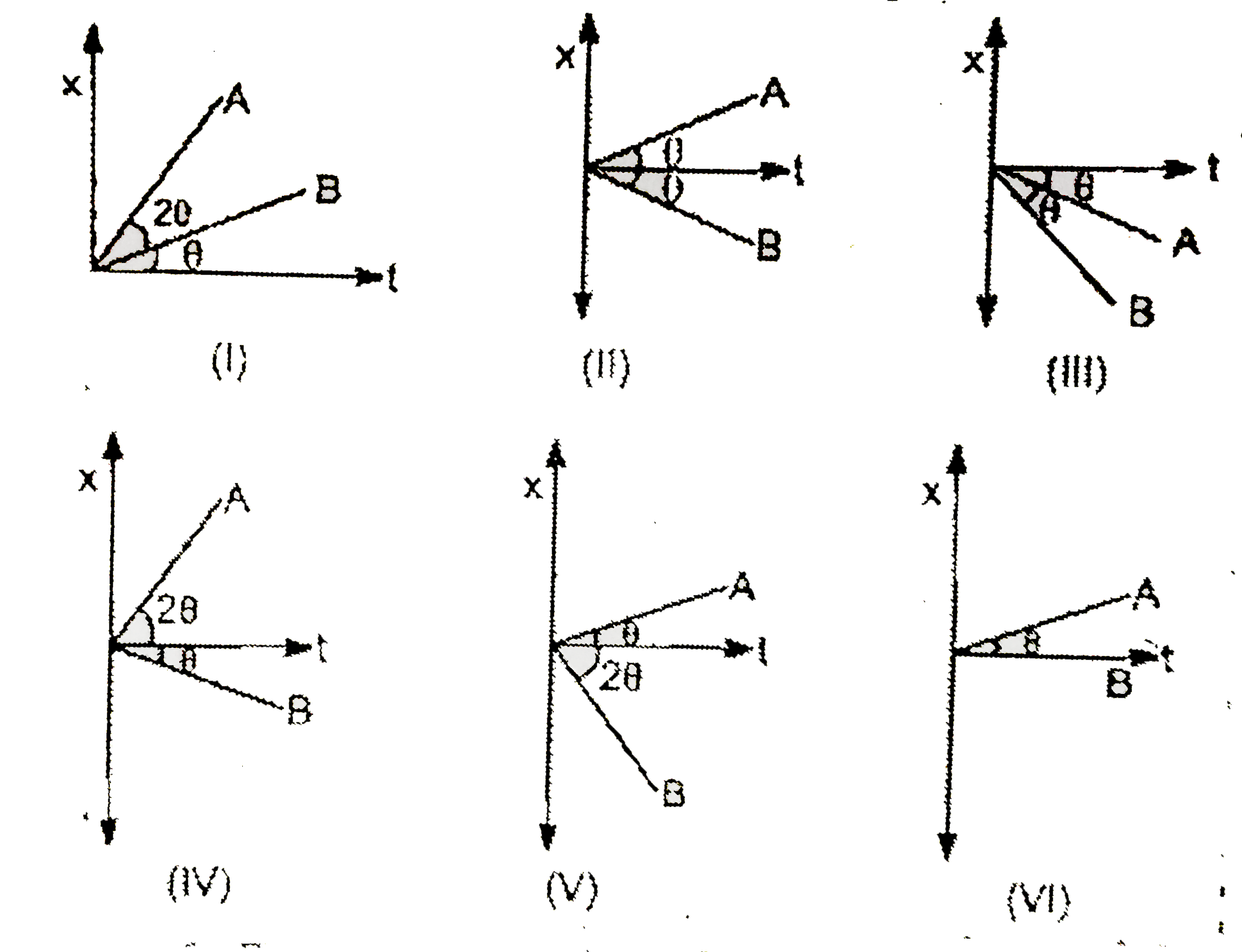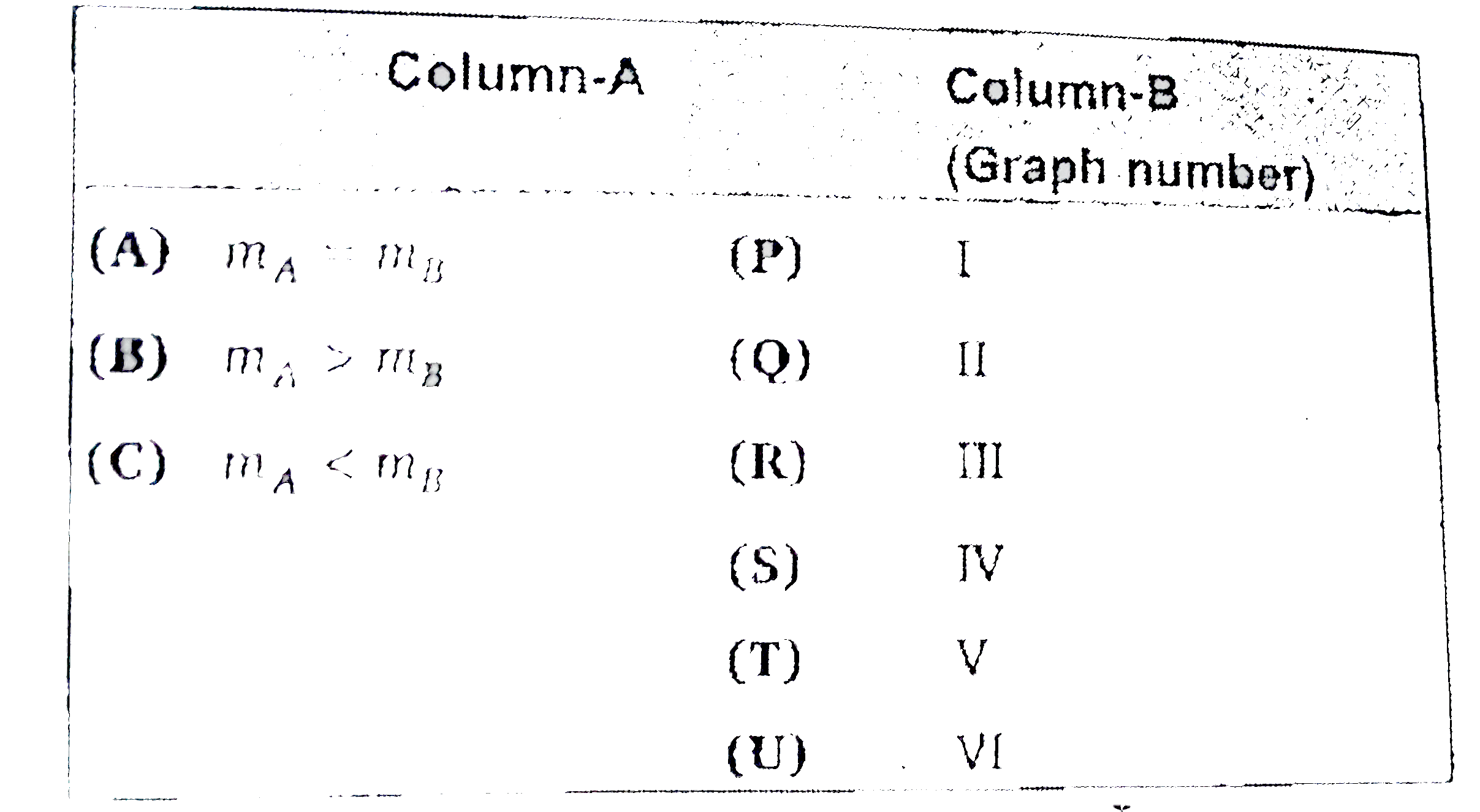An initially stationary box on a frectionless floor explodes into two places, places A with mass mA and piece B with mass mB. Two pieces then move across the floor along x-axis. Graph of position versus time for the two pieces are given.

If all the graphs are possible then, in which of the following cases external force must be acting on the box :-
II
V
VI
I
The correct Answer is:C, D
vcm is not zero in graph (I), (III) and (VI)
Topper's Solved these Questions
- CENTRE OF MASSBOOK - ALLENCHAPTER - CENTRE OF MASSEXERCISE - EXERCISE-IV A
32 Videos
- CENTRE OF MASSBOOK - ALLENCHAPTER - CENTRE OF MASSEXERCISE - EXERCISE-IV B
14 Videos
- CENTRE OF MASSBOOK - ALLENCHAPTER - CENTRE OF MASSEXERCISE - EXERCISE-II
43 Videos
- BASIC MATHEMATICS USED IN PHYSICS &VECTORS BOOK - ALLENCHAPTER - BASIC MATHEMATICS USED IN PHYSICS &VECTORS EXERCISE - EXERCISE-IV ASSERTION & REASON
11 Videos
- ELASTICITY, SURFACE TENSION AND FLUID MECHANICSBOOK - ALLENCHAPTER - ELASTICITY, SURFACE TENSION AND FLUID MECHANICSEXERCISE - Exercise 5 B (Integer Type Questions)
3 Videos
Similar Questions
An initially stationary box on a frictionless floor explodes into two pieces, piece A with mass mA and piece B with mass mB. Two pieces then move across the floor along x-axis. Graph of position versus time for the two pieces are given

If following graphs are possible then, in which of the following cases external impulse must be acting on the box?
View SolutionAn initially stationary box on a frictionless floor explodes into two pieces, piece A with mass mA and piece B with mass mB. Two pieces then move across the floor along x-axis. Graph of position versus time for the two pieces are given

Which graphs pertain to physically possible explosios?
View Solution
Knowledge Check
An initially stationary box on a frictionless floor explodes into two pieces, piece A with mass mA and piece B with mass mB. Two pieces then move across the floor along x-axis. Graph of position versus time for the two pieces are given

If graphs are possible then. in which of the following case, external impulse must be acting on the box?AIIBIVCVDVIAn initially stationary box on a frictionless floor explodes into two pieces, piece A with mass mA and piece B with mass mB. Two pieces then move across the floor along x-axis. Graph of position versus time for the two pieces are given

Which graphs pertain to physically possible explosion?AII,IV,VBI,III,VICI,III,VDII,III,VIAn initially stationary box on a frictionless floor explodes into two pieces, piece A with mass mA and piece B with mass mB. Two pieces then move across the floor along x− axis. Graph of position versus time for the two pieces are given.

Which graphs pertain to physically possible explosions ?AII,VBVICI,IIIDIV
An initially stationary box on a frictionless floor explodes into two pieces, piece A with mass mA and piece B with mass mB. Two pieces then move across the floor along x− axis. Graph of position versus time for the two pieces are given.

Which graphs pertain to physically possible explosions ?
View SolutionAn initially stationary box on a frictionless floor explodes into two pieces, piece A with mass mA and piece B with mass mB. Two pieces then move across the floor along x-axis. Graph of position versus time for the two pieces are given

Which graphs pertain to physically possible explosion?
View SolutionAn initially stationary box on a frictionless floor explodes into two pieces, piece A with mass mA and piece B with mass mB. Two pieces then move across the floor along x-axis. Graph of position versus time for the two pieces are given

Based on the above question. Match column A with the column B.

View SolutionComprehension # 8
An initially stationary box on a frectionless floor explodes into two places, places A with mass mA and piece B with mass mB. Two pieces then move across the floor along x-axis. Graph of position versus time for the two pieces are given.

Which graphs pertain to physically possible explosions ?
View SolutionAn initially stationary box on a frectionless floor explodes into two places, places A with mass mA and piece B with mass mB. Two pieces then move across the floor along x-axis. Graph of position versus time for the two pieces are given.

Baed on the above question, Match column A with the column B.
Column AColumn B (Graph number)(P)mA=mBI(Q)mA>mBII(R)mA<mBIIIIVVVI
View Solution
